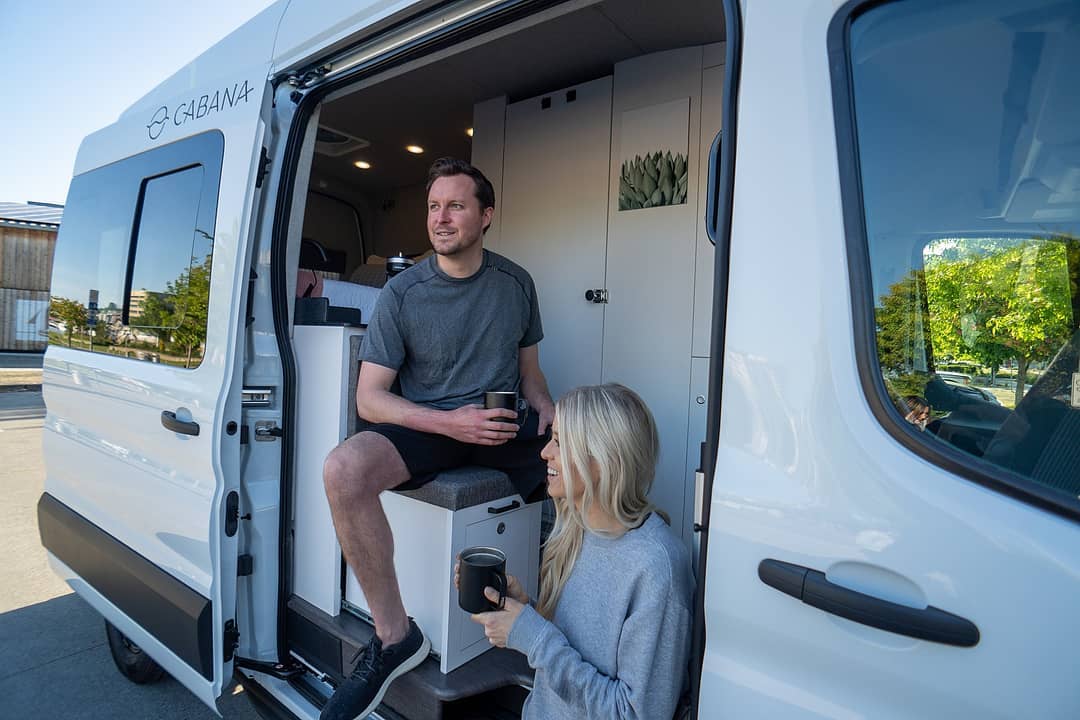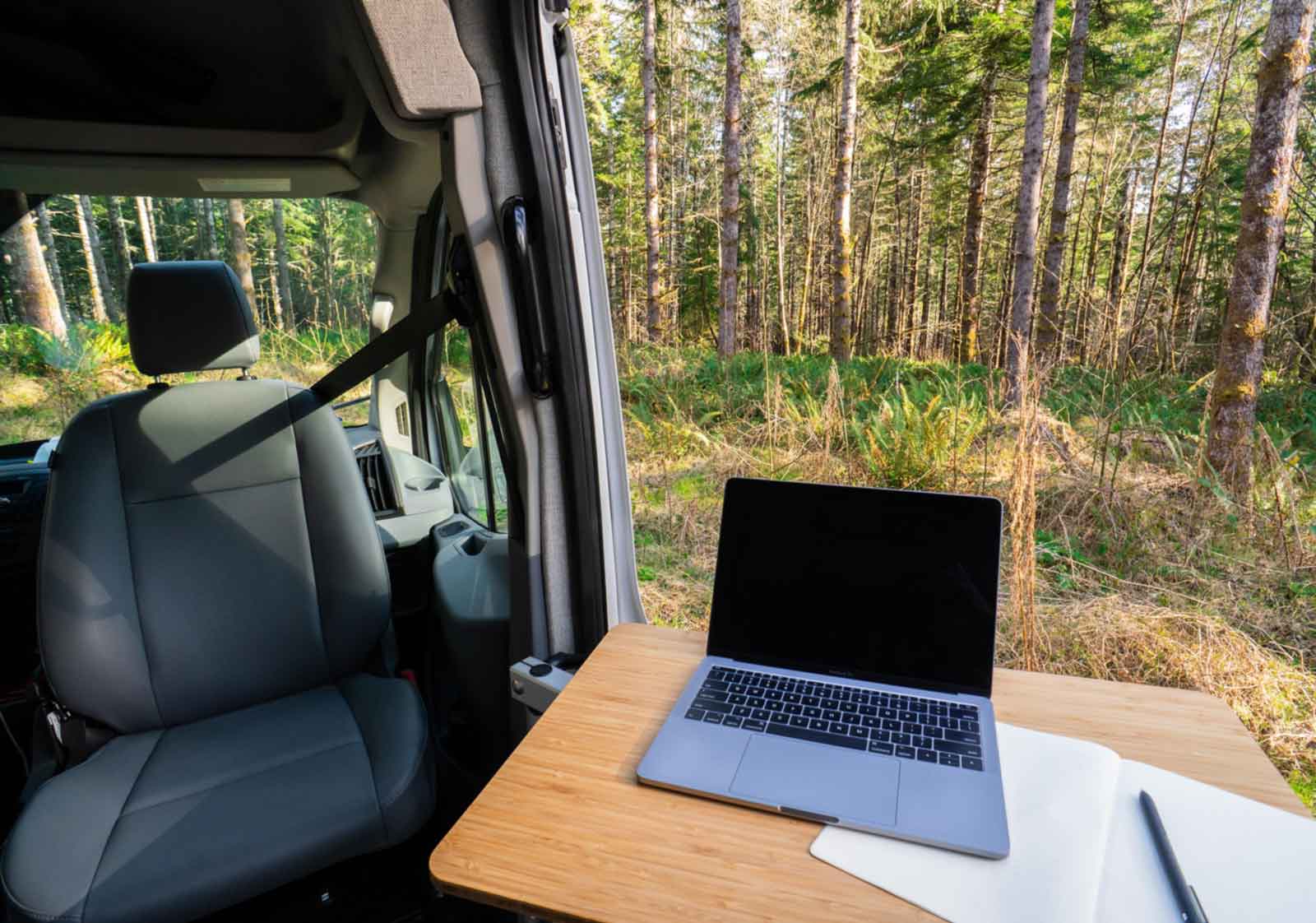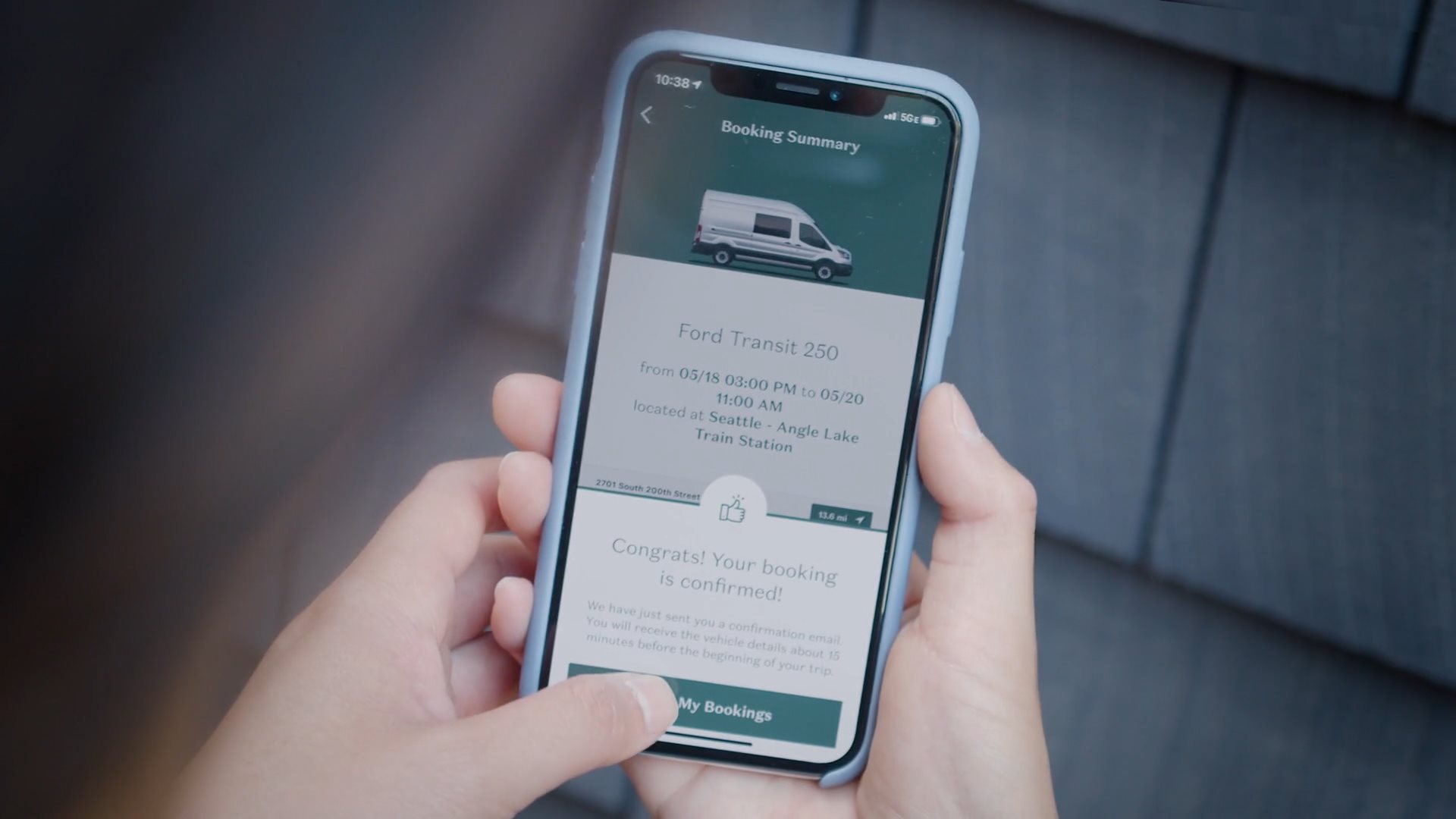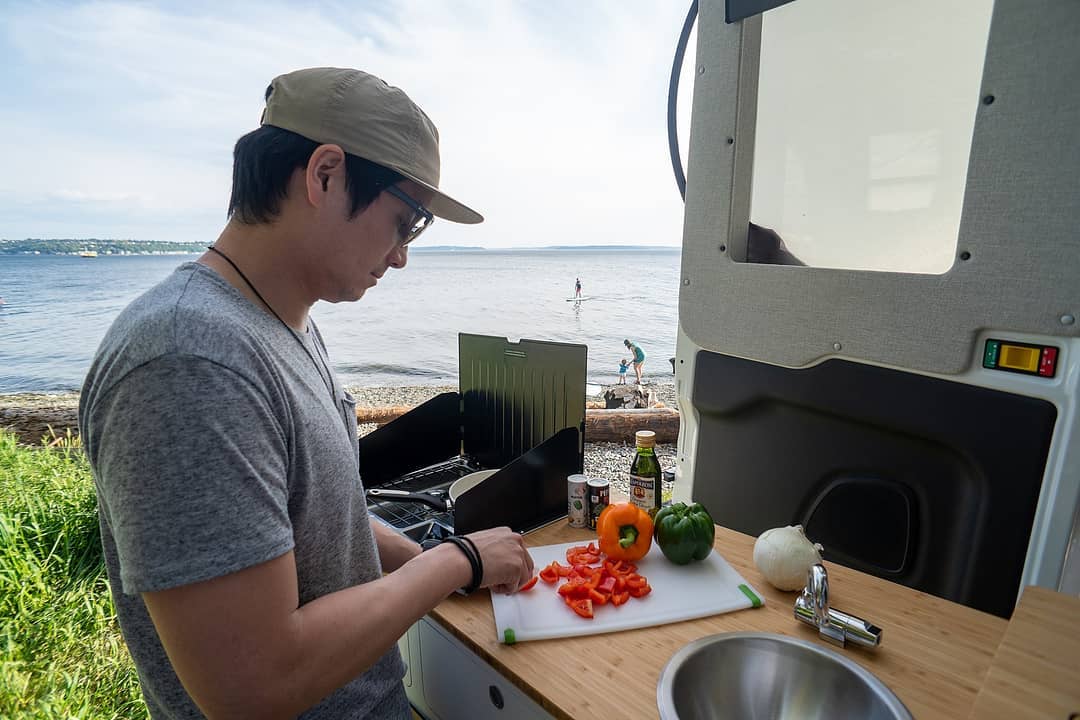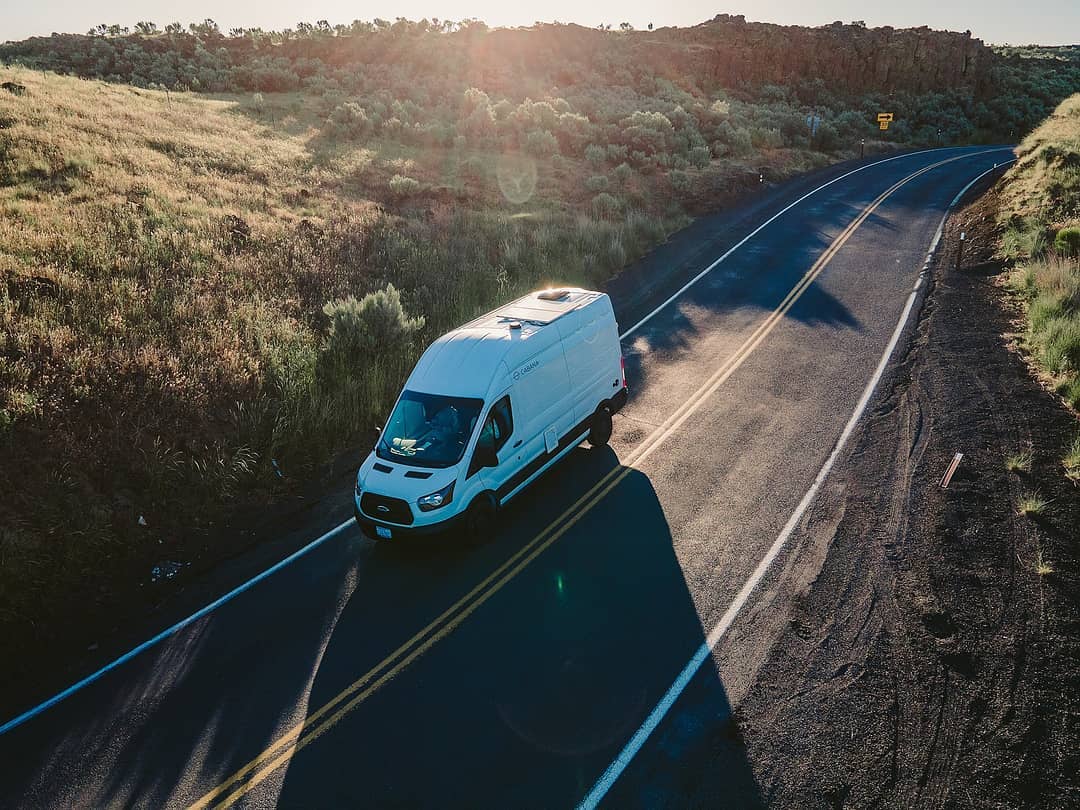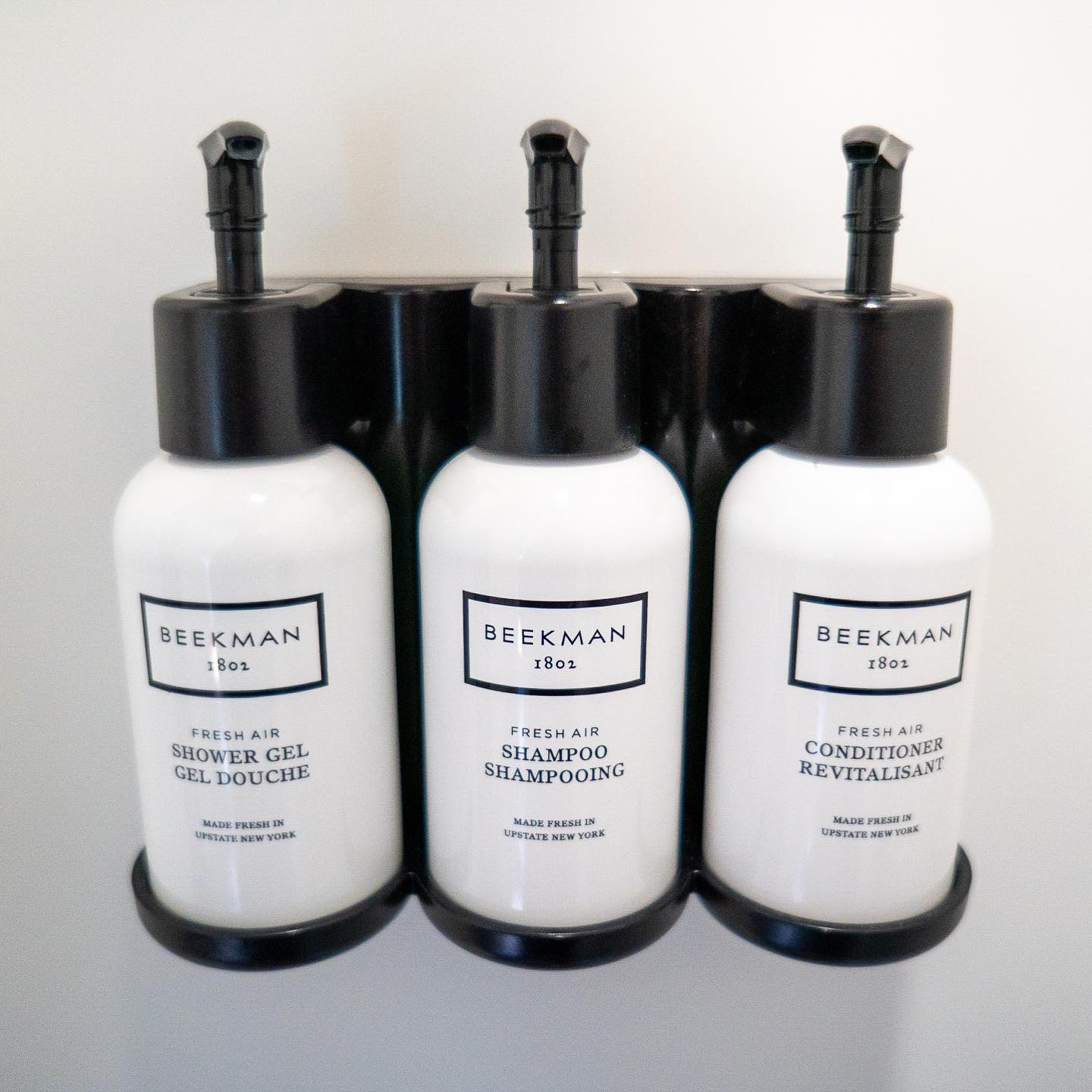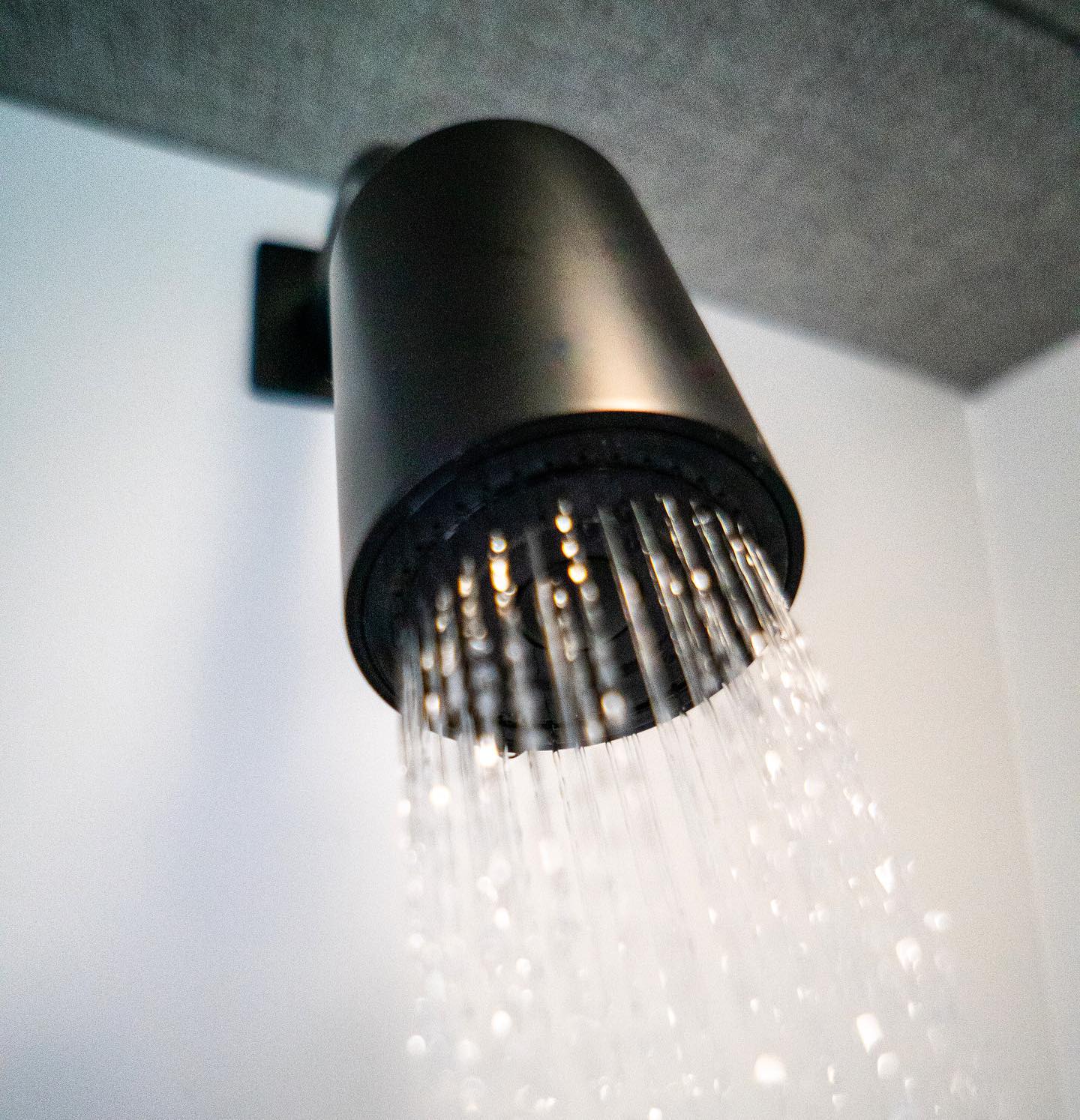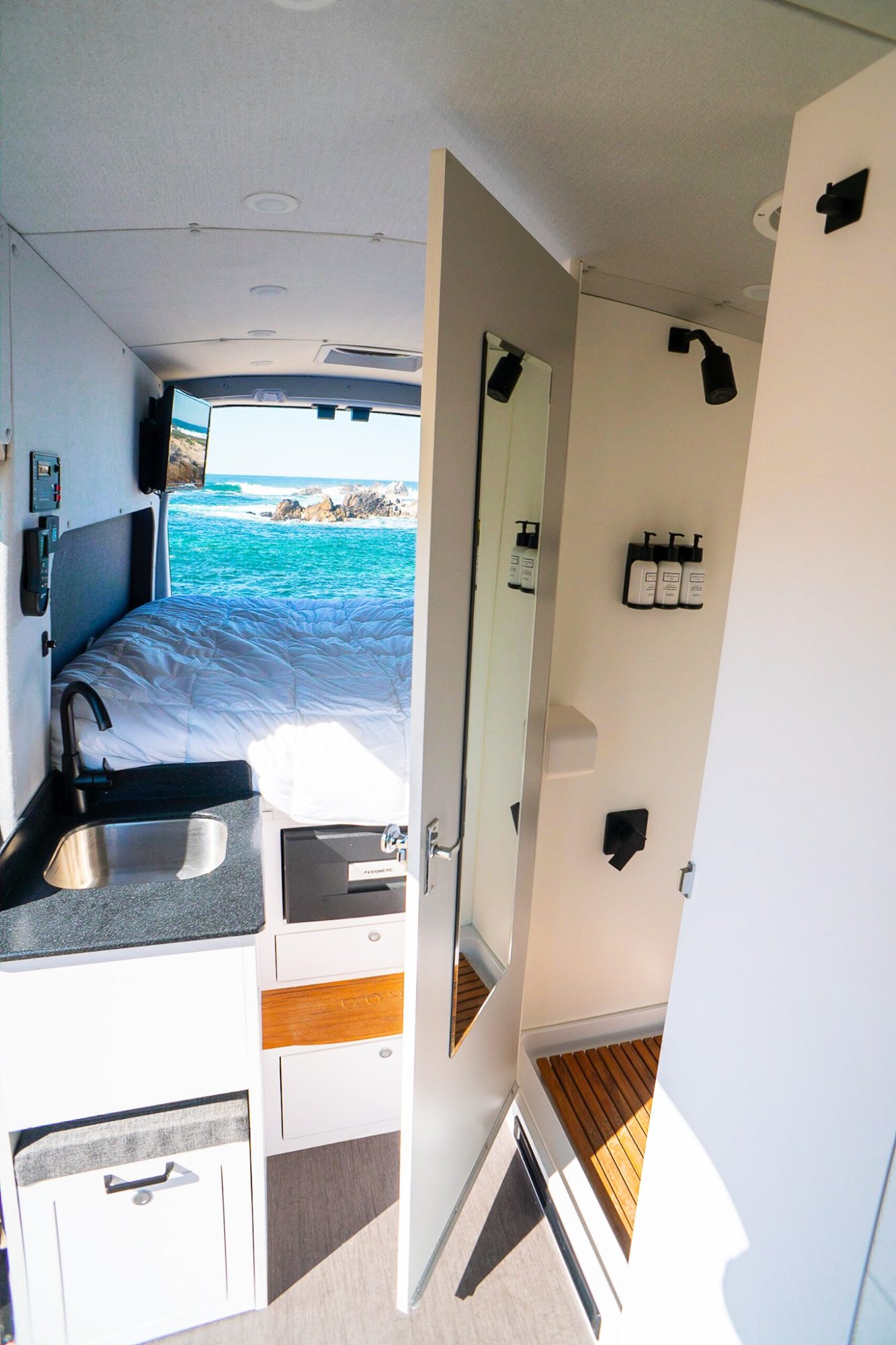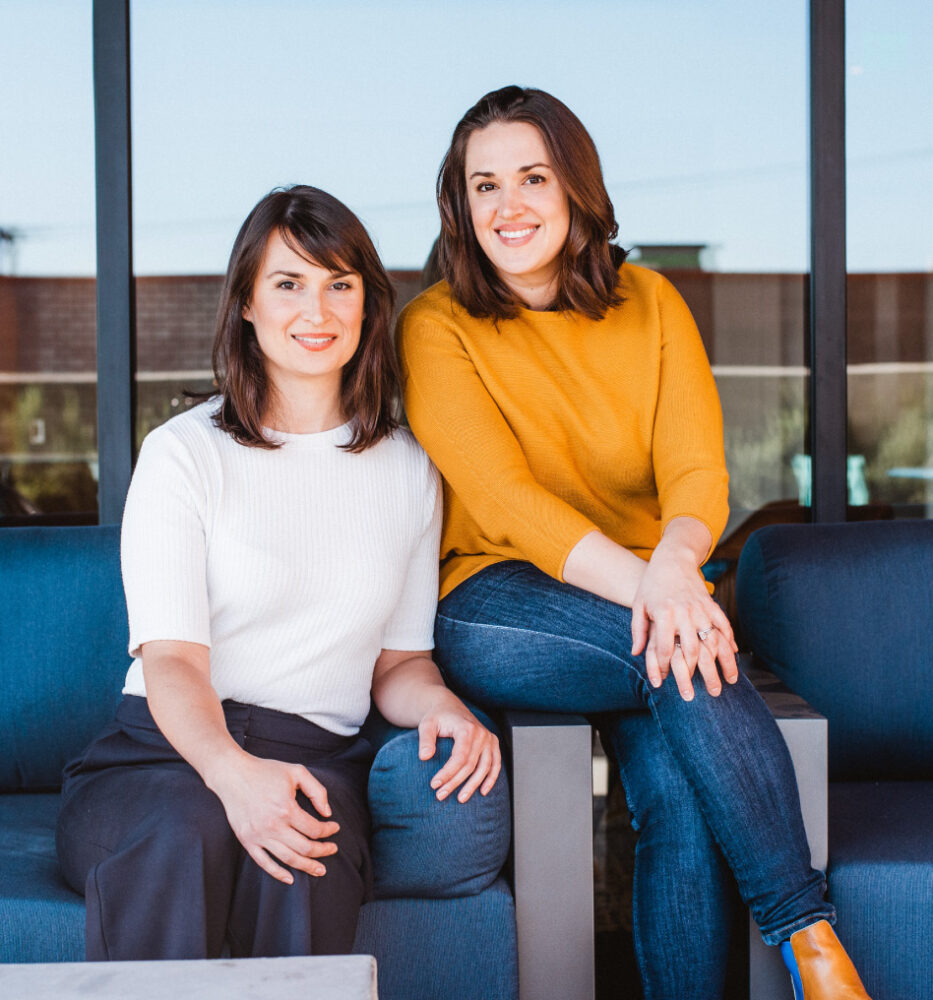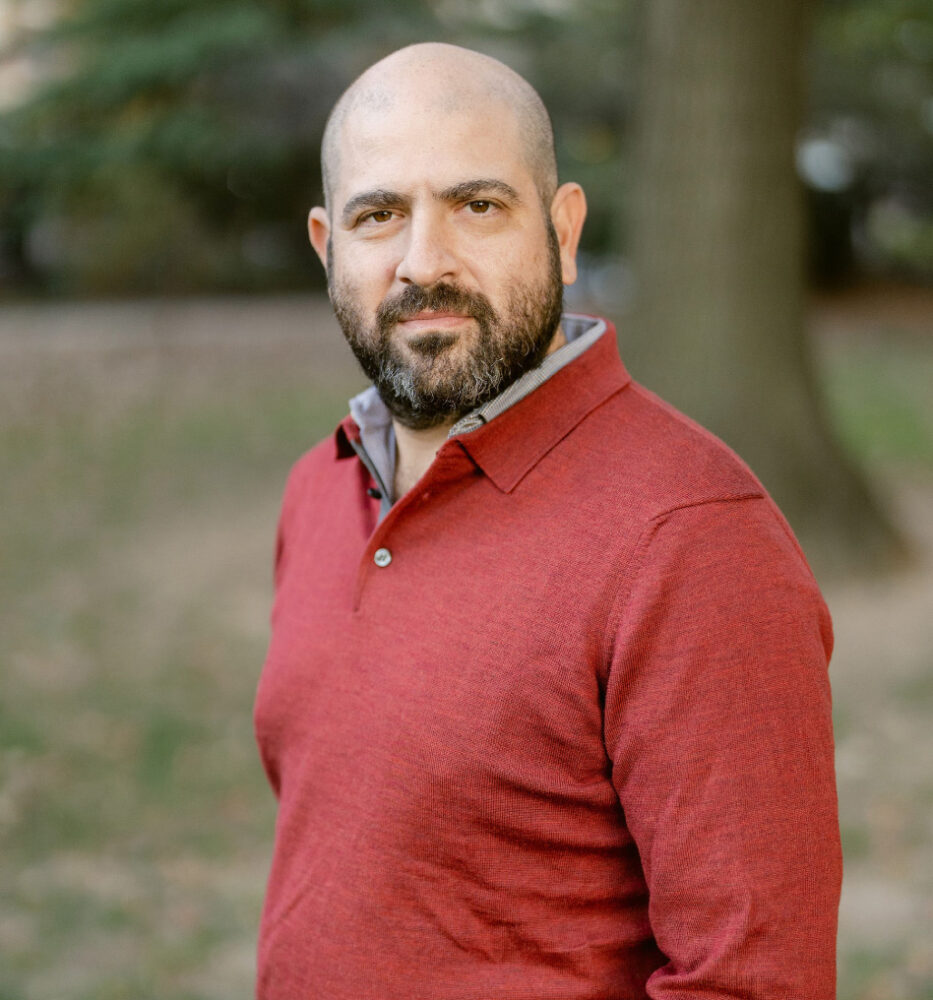Future Hospitality
podcast
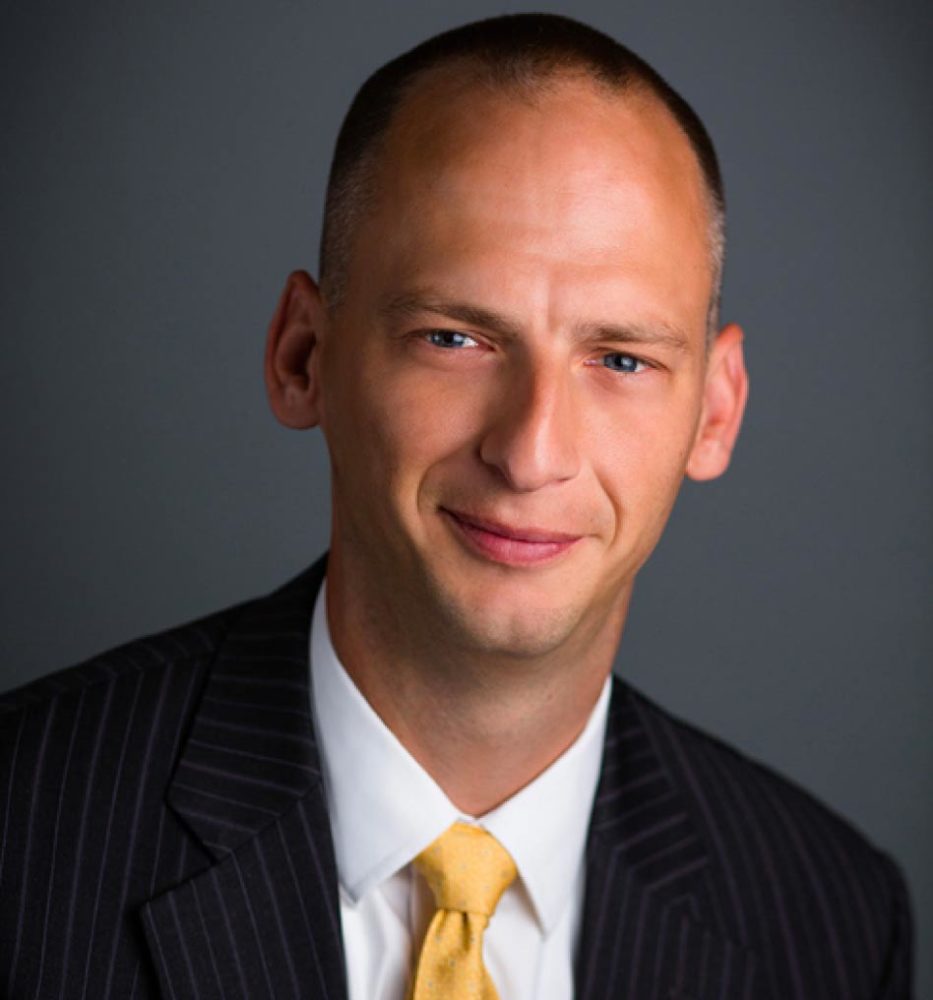
#9: A New Way to Ride into the Future of Travel: Scott Kubly
July 22, 2020
Jeremy Wells: Hello and welcome to another episode of the Future Hospitality Podcast. I’m your host, Jeremy Wells, joined today by co-host, Dustin Myers. We are partners at Longitude Branding, a hospitality branding, and experience design agency. At Future Hospitality, our goal is to interview the brightest minds in the industry, gathering insights, ideas, and inspiration to share with you. Today, we’re excited to chat with Scott Kubly, CEO, and Founder of Cabana. Cabana is changing how people travel by packing the best amenities of a boutique hotel experience into transit vans with modern form factors.
Started this year, Cabana is helping to make waves in the luxury van life movement. Scott will share challenges his team has faced since their launch, as well as the exciting future of transportation and travel. Let’s dive in. Hey, Scott, thank you so much for joining us today. We’re really excited to chat with you.
Scott Kubly: Yeah, thanks for having me.
Jeremy Wells: Yeah. So for those of you that don’t know, Scott is heading up the ship over at Cabana and they’re doing some really interesting stuff out there. We reached out to them because it just seems so unique that the type of problem that they’re solving in the market and we thought it’d be really great to talk with him about his business, how the last 100 days have affected his business and what his plans are moving forward into the future as well. So, Scott, for those listening to that might not know what Cabana is, how would you describe it to them?
Scott Kubly: So Cabana is, I think the simplest explanation is it’s basically van life meets car-sharing meets a boutique hotel. And so you can go online, download our app, book a van, and then you walk up to the van and you can check it all out on your phone and then you’re off and going. So that’s the car-share side. And the boutique hotel meets van life side is we’ve basically taken a Ford transit van and put it all of the elements of a hotel in the back. So queen size bed with a really thick eight-inch memory foam mattress, Wi-Fi, smart TV with an Amazon Fire stick so that you can stream all your favorite shows. It’s got a whole bathroom and then seating for two and it’s all kind of like packed in to the back of a van, all kind of like very luxurious and high end. And so it gives you the freedom to explore any city that you’re in and park it and sleep wherever you want or you can take it out to the country to go skiing or hiking or mountain biking or you can do both all in one trip.
It’s basically van life meets car-sharing meets a boutique hotel.
Scott Kubly
Jeremy Wells: Yeah. Yeah. You guys pack a lot in those little, I mean, they’re not really little, but you pack quite a bit in there. I was looking through all the pictures and watched some of the videos and it’s pretty cool how you guys do that. How’d you guys come up with the idea for Cabana in the first place? What brought that about?
Scott Kubly: I was traveling a ton for my last job. I was on the road for over 54 consecutive weeks and just sort of staying in the same cities over and over. And what I realized was when I would watch these rates fluctuate, what I saw was like demand far outstripping supply driven by events and then I also realized that I’m paying $400 a night to stay in the Tenderloin in San Francisco, which is strictly due to land value and supply. So if you can put real estate on wheels, you essentially have an opportunity to take the land value out of the cost of your hotel. So you can get at a much lower price point. You can get a hotel wherever you want it. That was the genesis of the idea. And then COVID obviously completely upended that and I think actually validated the flexibility of the model because as business travel and tourism kind of tanked with people traveling, hotels around the country, around the world kind of saw their bookings all evaporate.
We saw the same thing from people that were traveling into Seattle, but then as soon as those bookings were canceled and the stay-at-home orders started getting relaxed, a bunch of locals came in and started booking vans and taking it out into the areas around Seattle. So it’s like this super flexible form factor that allows you to serve tourists coming into a market. But if for some reason that doesn’t work, you have locals that are going to be taking staycations. That’s kind of what the last a hundred days looked like.
Dustin Myers: Yeah. That’s really fascinating how the hospitality industry is evolving. I think outlets like this are going to be a huge piece of the future for that. I think it’s really cool how it was created out of necessity of just being on the road so much and looking for a better way. What were some of the biggest challenges that you faced early on as you were conceptualizing this and seeing if it was actually going to be viable?
Scott Kubly: Well, I mean, I would put it in a few different buckets. So I think the first bucket is it’s a pretty radical idea to go and tell people that you’re planning on building mobile hotel rooms in the back of a cargo van. You’re selling people on a vision that you don’t even have renderings for yet. And so that made fundraising early on really interesting and challenging. So you talked to a lot of angel investors and they looked at it and they said, “Okay, it’s really capital-intensive and I’m struggling to visualize what you’re talking about.” And fortunately, we found the right investors early on that had led disruptive companies in the past and so kind of totally got the nature of the vision and have been incredibly supportive.
So that was challenging. Then I think the other challenging aspect has really been around how do you take this concept in a relatively lean fashion to build something completely new and different. So we talked to 25 or 30 different van builders around the country about what we were trying to do and the vision that we were trying to achieve. And really like we struggled to find anybody that, one, got the vision, and then two, have the capacity to do the work. And we were really fortunate to find a great partner to get us started. I think those have been the two big challenges.
Jeremy Wells: Yeah. Yeah. And as you were talking to these people to investors and to builders of van builders and things like that, as you’re sharing the vision with them, I mean, do you view this Cabana as filling a void in the market or do you see it as creating an entirely new space or what was your thoughts around that?
Scott Kubly: I think a little bit of both. So I think the problem that we’re solving is that I think you can come at it from like when you’re pitching folks, there’s like two different ways to pitch it. One is like, “Here’s the problem and here’s our solution.” And the other is, “Hey, we’ve got this great new product that nobody actually has seen or is asking for.” So it’s like reminds me of the old Henry Ford quote, if I’d asked folks what they wanted, they would have asked for a faster horse.
I think a lot of people want, when they visit a city, they want a really authentic experience.
Scott Kubly
So I think it’s a little bit of both. On the problem side, I think the way I think about it is that hotels in cities are generally stuck in all of the wrong places for a lot of travelers. They tend to be kind of like in sterile downtowns or kind of like sterile parts of downtown where it’s basically all tourists. And I think a lot of people want, when they visit a city, they want a really authentic experience. And so I think you want to stay in the neighborhood, but there’s no hotel in the neighborhood. So you wind up in an Airbnb, but a peer-to-peer platform. There’s a lot of very spotty or erratic experiences, and then you take it to the country and traveling in the outdoors and there’s a lot of folks that, for whatever reason, maybe they don’t want to camp, maybe they don’t have the gear because they live in a small apartment. Maybe they love being out in the wilderness, but they really liked sleeping in a bed, which is me. But they don’t want to like tramp around in a giant RV that is bigger than any vehicle they’ve ever driven, and frankly, doesn’t have a particularly cool factor and kind of looks like something that your parents might drive around unless you have very cool parents in which they’ve already built their own camper. So I think that was kind of the problem that we’re trying to solve.
Jeremy Wells: Yeah. As you were creating the concept for the van itself and equipping and modifying it, were there any like unique challenges you face with that portion of it? What were some things that you did to kind of enhance the guest experience?
We approached every design challenge with two questions in mind, which was, “How do we make it like a hotel or better?” And also, “How do we turn every problem into an opportunity?”
Scott Kubly
Scott Kubly: Yeah. I think it’s a really good question and I don’t want to dive too into it because I think we’ve got like a little bit of secret sauce in terms of how we accomplished a lot of what we did. But I’ll give you one that’s like super visible and kind of gives you a frame of reference for how we think. So we kind of like approached every design challenge with two questions in mind, which was, “How do we make it like a hotel or better?” And also, “How do we turn every problem into an opportunity?” And so if you take something as simple as a shower, which at the end of the day, the bathroom drove the entire vehicle design because to meet the hotel experience, you have to have an amazing bathroom and to have an amazing bathroom in a van is that’s a pretty hard design challenge.
So we used a Corian shower surround, so a solid surface, really clean lines, elegant shower surround. And then in the bathroom, we have this like plastic shower pan, which is kind of a synthetic material that doesn’t feel super amazing in your feet, right? It doesn’t feel like a hotel. Then the second problem which is you’re not always parked on level ground. And so that tub isn’t going to drain properly or that shower pan isn’t going to drain properly. So then if you’re taking a shower, you’re standing in your own shower water, which again not an amazing experience, not something that you would tolerate in a hotel room. But something that folks will tolerate in a van, but not in a hotel room.
So that’s the design problem. So how do you solve that? Well, maybe you drill multiple holes in the van, in the shower pans where you have multiple drain points. But what we did instead was we basically took like a three-quarter inch sheet of bamboo plywood and turned it into a shower pan. And so now you’re standing above the pool of water, right? So you’re not experiencing that. And then beyond that, you’re now standing on a natural material that’s the same as the step up into the bed and the dinette table and the modular kitchen that pulls out of the back of the van. So it like ties in from the material and aesthetic point to the rest of the van. It gives you a very like warm and natural material on your feet and then solves the functional problem.
If you go through the van and you sort of say like, “Every time we came into like a design challenge, that was kind of the lens that we ran it,” through and that’s I think how we came up with what we did.
Dustin Myers: Yeah. That’s really cool. It’s amazing that living in a van down by the river was frowned upon couple of decades ago, but now it seems to be pretty…
Scott Kubly: That was the dream. Oh yeah. And I mean, also like you could work from a van down by the river. Right? Because we have Wi-Fi. Now if you have a job that allows you to work remotely and so many people are getting to work from home now, it doesn’t really matter where that home is. Right? So you can like take a van midweek, do your work, and then as soon as you’re off work, you’re actually at the trailhead and you can go hiking.
Dustin Myers: Yeah. I wish you had them closer to us.
Scott Kubly: Coming soon. I went to college in Rolla. So I’m aware of how beautiful that part of the country is.
Dustin Myers: That’s awesome. So you’ve been launched about a year now, is that right?
Scott Kubly: now we started, we incorporated July 22nd of last year and then the first thing that we did was I took a home equity loan out and bought a used van and put it on Craigslist or not on Craigslist, bought it off Craigslist and put it on a peer-to-peer platform in August. So about 10 months. And then with our custom-built vans, we started renting those out in February and then launched our brand, like our official brand at the end of May.
Dustin Myers: Okay.
Scott Kubly: So really only about five weeks or six weeks of really kind of like officially operating as Cabana.
Dustin Myers: Right. Right. So what kind of a wrench did COVID throw into your launch plans and how did you navigate through that? What lessons are you learning through all of that?
Scott Kubly: Yeah. So I’m a cup one-quarter full person. So I will find a silver lining in just about any situation. So COVID was pretty scary, but it turned out to be pretty serendipitous as well. So we were originally planning a launching in mid-March, launching a brand in mid-March, and like we’re going to launch with a different brand and we kind of like got to the 11th hour and we didn’t have got checked. We’re like, “You know what? We really don’t like what we’ve come up with.” And so we did a total rebrand. But for that, we would have launched our brand right before COVID hit and hit in earnest in mid-March. Instead, we held.
So what happened is basically like we had bookings, right? Because we’re operating unbranded and every single person canceled. Every single booking that we had pre-COVID wound up canceling. And so we were pretty nervous. It was pretty dark days. And then like mid to late April, people who’ve been in their house for four to six weeks, they’re getting stir-crazy, they can see the light at the end of the tunnel and they start coming back and booking vans. And so we saw this a massive uptake actually more than we have pre-COVID.
It was actually really perfect timing for the brand because you see people. So the other wrinkle was people generally make their summer vacation travel plans in January and February. And so we’re doing this big brand launch in March. We’re really like being opportunistic and looking for those last minute planners and folks that have like kind of put it off. But what COVID did is it basically resulted everybody canceled their summer travel plans and then we launched as people are rebooking all of their travel and they’re now thinking about, “How do I say it stay out of an airport and the airplane and how do I stay out of a hotel?” And here’s this product that like gives you all of the hotel amenities, but does it in a way that allows you to stay completely socially distance.
So, I mean, it drew like a massive curveball to us and has definitely changed kind of like how we were thinking about our initial marketing and who we were initially marketing to, but it also kind of created this massive opportunity that wouldn’t have existed pre-March.
Jeremy Wells: Definitely. Yeah. I think the industry is definitely going to be seeing the domestic and leisure travel leading the recovery. And it sounds like you guys are well prepared and getting prepared for that to happen. What other ways is Cabana preparing for kind of the influx that a lot of people are anticipating?
Scott Kubly: Influx of demand?
Jeremy Wells: Yeah.
Scott Kubly: Well, we’re planning an expansion. So we’ll be in the next month or so announcing the next market that we’re launching into and then I would anticipate by spring of 2021, ready for the summer travel season in 2021, we’ll be at another call it six to ten cities.
Jeremy Wells: Awesome. Do you have any hints for us as far as the next market you’re launching to?
Scott Kubly: I would say stay tuned. I mean, one thing that I would say is kind of a driving factor is the desire to open up one-way trips so that people can rent a van to Seattle and drive it to city X, drop it off and then fly home.
Jeremy Wells: Oh yeah, yeah.
Scott Kubly: That kind of like will help drive decision making on what markets. I grew up in the Midwest and so one of the things that I’m excited about is building a national brand that is kind of like omnipresent in every city because one of the things that like, again, like silver linings, one of the things that I get excited about when I think about how COVID is changing travel is I think there’s a lot of small towns that 50 to 100 years ago before plane travel was ubiquitous and affordable, there was like tourist towns everywhere, like down where you guys are, Eureka Springs, it was an old Victorian tourism center and it was like just absolutely beautiful setting. And in a post-COVID world, does that kind of setting come back as a place people decide to go on vacation to or in Chicago where I live for a good chunk of my early life and then as an adult?
There’s a bunch of tourist towns along the kind of Eastern Coast of Lake Michigan, Western side of the State of Michigan that are great little vacation destinations that are going to be a lot more appealing now that a plane trip to the Caribbean is a potentially life and death situation.
Dustin Myers: Yeah, for sure. So switching gears a little bit into the future, I know that you’re looking ahead to the autonomous driving vehicles and platooning and things like that. What are your thoughts on how that’s going to shape this new van life market?
Scott Kubly: I think autonomous and it just depends on kind of like what level of autonomy you want to focus on. So the early autonomies most likely going to take place in the long-haul trucking industry and on limited-access highways where there’s, no pedestrians and it’s a much simpler operating environment. So I could envision it becoming much easier for us to move vehicles between markets to handle seasonality or spikes in demand. So you can envision you have a South by Southwest in Austin and all of the vans from San Antonio, Houston, Dallas, Oklahoma City, et cetera kind of platooned into Austin to provide hotel rooms on a spot basis.
You add to it like a fully autonomous future and a few things happen. One is the form factor. One is the form factor of that vehicle changes quite a bit and then the other is that how you can use it changes. So the example that I like to use is you’re living in Seattle, you have a fully autonomous Cabana available to you. Friday, four o’clock rolls around, you decide you want to go to Yellowstone, which is a 14-hour drive away. You hop in your Cabana, order your food via Postmates or Yelp or whatever, get in the van, eat, stream a few shows, hop in bed, fall asleep as the van is driving you all the way to Yellowstone. You got there. You wake up at like 6:00 AM 7:00 AM at a trailhead, go for a nice long hike for a few days, taking the wildlife, whatever it is you want to do. And then Sunday night, four or five, o’clock, you pile back into your Cabana. You’ve got your work clothes with you, right? And you make a little food, stream your shows or your Sunday night shows and then wake up the next morning at like the front door of your office. You just had this amazing weekend that you wouldn’t have been able to have pre autonomy.
Jeremy Wells: That sounds like a dream to me.
Scott Kubly: Yeah. I mean, when you think about that of like what that kind of lifestyle could mean, I mean, I like this is a little bit kind of tongue in cheek, but also I don’t think completely that far off. I mean, people talk about like a gap year. And I think it’s like, “Okay, what does a gap decade look like when you’re 20, 22 and you just graduated from college?” You have a job as like a graphic designer where you can work from anywhere and why not do that? You basically are completely mobile.
Jeremy Wells: Yeah.
Scott Kubly: And then when you’re ready to settle down, you pick the city that you want to live in and you go live in there and raise a family.
Jeremy Wells: Yeah. That sounds like a pretty exciting future. I mean, how far off do you think that we are from seeing the beginnings of that?
Scott Kubly: You know, I don’t know. My transportation background, it’s kind of funny. I never really paid too much attention to the autonomy space when I was running the city DLT because I figured smarter the people than me are working on it and it’s not going to sneak up on us. So what I do is like five to ten years and what I also hear is like when somebody says five to ten years, what they really mean is they have no idea, but I mean there are already trucks that are being operated autonomously in test mode, kind of traveling the country. I think that again if you look at COVID and what is going to do, I think it’s going to accelerate trends. And when you think about populations at risk, the trucking population tends to be older, tends to have higher risk factors. And so you could very easily see kind of like increased push to make autonomous long-haul trucking happen faster from a regulatory standpoint.
So that’s already happening. I think the full autonomy, the Robo-Taxi vision, that I think is a little farther off, and I think it’s going to be harder than a lot of people think and I think folks are starting to figure that out. It’s kind of like when you have an Uber, you’re sitting in an Uber or Lyft and you’re trying to get dropped off and the driver asks, “Where do you want?” And you say, “Oh, over there behind the red thing, the red car.” Right? How is an AI going to figure that out and like pull you up to the exact right location? And then like take into account maybe you’re in a part of town where the curb height is too high and they need to pull over and say, “Oh, can you pull up a little bit?” What does a little bit mean to a robot? So I think that stage could take a lot longer to get to that level of precision.
Jeremy Wells: Yeah.
Scott Kubly: You saw Amazon just made a bet on, I think they acquired a company called Zoox that’s building autonomous Robo-Taxis, which to me says, they’re going to basically have like prime mobility where your prime account also comes with like ubiquitous ride-sharing. So it’s going to happen. We’re not going to build the technology, but we’ll definitely buy it.
Jeremy Wells: Yeah. Yeah. I was curious, do you guys plan on doing any sort of lobbying for autonomous driving and being involved on that level? Or are you just going to kind of write it and see where it goes?
Scott Kubly: I don’t know. I’m the type of person where I just think, like, “We need to focus on doing our thing really, really well, and then let other people that are better.” It’s like a Ricardian kind of economy, like comparativeness. Like we’re never going to be the most effective lobbyists for autonomous vehicles. It’s an amazing night staff for our industry, but like we’re a 10-man startup. We got to focus on like providing amazing guest experiences. And then when other people perfect that technology, then we’ll be the first customer.
Jeremy Wells: Definitely. That’s awesome. So you got a fairly new startup, you got some unique plans envisioned for the future. Do you have anything else that is kind of exciting to you about the future of the industry moving forward?
Scott Kubly: Yeah. I mean, what I love about it is being able to like come to this old form factor. It’s not like RVs are like a great innovation that we’ve come up with. They’ve been around for 50, 60, 70 years. But I think coming to it with like a totally disruptive mindset of like questioning all orthodoxy, I think that we’re not too far away from being able to build it and I think within kind of like the next year building a vehicle that allows our customers to go completely off-grid for two or three weeks.
Dustin Myers: Wow.
Jeremy Wells: That would be great. Nice. A relaxing getaway for sure for that time period.
Scott Kubly: Exactly. Yeah. Because at the end of the day, it’s got to be simple to use because people don’t want to have to like learn how to like empty a toilet tank. Right? We need to do that for them. So our goal, like everything we do is like, “How do we make it as simple as possible?” Because like I’m an exceptionally lazy. I work really hard and I’m a lazy consumer and I want everything to be as simple as possible. And if it’s not incredibly simple, I’m too busy to learn how to use it. And that’s kind of the mindset that we’re applying to the design. And so I get really excited about like the product development and how we can innovate on that.
Dustin Myers: Awesome. Awesome. So, yeah, we’ve kind of looked at the future of the industry as a whole. I think this mobile transportation aspect of it is going to be huge. On a more personal level, Scott, what are you excited about in your future? What are you looking to try areas you want to grow? How would you answer that on a personal level?
Scott Kubly: Oh, like personal, I don’t know. I have a daughter that is just about to turn three and it’s like the most exciting thing I’ve ever gotten to do. It’s like the most fun thing that I’ve ever done and I just love kind of watching her grow and explore the world.
Jeremy Wells: Good stuff.
Scott Kubly: Yeah.
Jeremy Wells: Scott, we appreciate your time and it was very interesting to hear kind of the journey and your insights there and to the future as well.
Scott Kubly: Oh, thank you. Yeah. Thanks for having me.
Jeremy Wells: Thanks for joining us. Yeah. Thank you. I hope you enjoyed today’s episode of Future Hospitality Podcast. If you enjoyed today’s topic and episode, please leave us a review. You can also find us on Instagram @FutureHospitality and on Facebook by searching for Future Hospitality.
[End]
